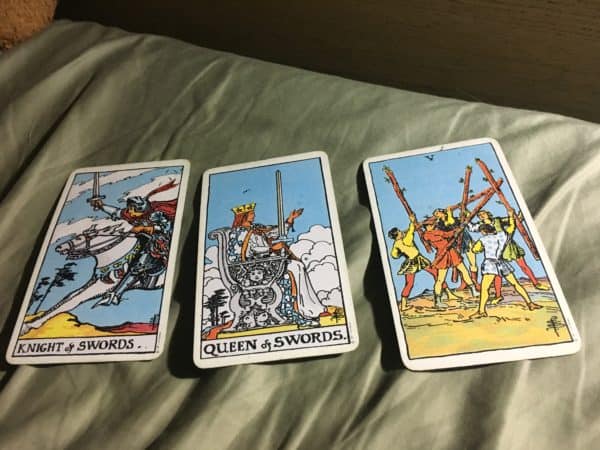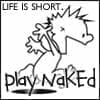I’ve been thinking a lot lately about “protecting the work.”
I ran across the concept years ago, in this essay by Jennifer Crusie. Much like my beloved writing partner’s “it makes me tired,” it’s a phrase I absorbed and had to spend a long time learning to apply.
I’m slow, yes, but I can be taught. Just ask said writing partner.
I ran up against a wall last week. A high creative spike collided with some…unfortunate news. The energy I’d been using to create a new world from scratch evaporated into Dealing With Bullshit, and I ended up drained to transparency, my nerves raw exposed sparking wires and my fists aching for the heavy bag I still haven’t had the time to hang up. (Even though we’ve been in this house for *mumblemumble* years now.) I knew the signs–I’d hit burnout, and in a big way. Self-care was called for, so I took the weekend off, read a few books, hung out with the kids, brushed the dogs, did housework, and only wrote 200 words each day. *sigh*
What do you do when burnout is a real and looming problem? Here’s a few strategies.
* Admit there’s a problem. It sounds stupid-simple, right? I always think of my therapist introducing me to the transtheoretical model of change–specifically, the precontemplation part, where you begin to think about thinking about changing. A possibility one does not admit is a possibility lying fallow. Admitting to yourself that your work has value, your energy is finite, and you are worth conserving some of said energy to spend on what you want and like doesn’t sound like a big deal, but without it there’s a snowball’s chance in a forest fire you’ll be able to protect yourself. Protecting yourself is part of protecting your work.
* Small wins. I can tell when I have enough energy, because I can look at the master to-do list taped above my desktop and feel excited instead of crushed under a heavy load of pointlessness. When the latter happens, I flip the list so I can’t see it and say out loud, “I need a win.” Which is my verbal signal to start looking for something easy and quick that I can feel good about. Like setting a kitchen timer for five minutes and writing. When the timer rings, I feel good because I did at least that. Or I do three pushups–just three. That’s a small win. There are a couple games I keep on easy mode for when I need the dopamine jolt of a quick victory. Cooking an egg. Pulling a few weeds. The whole point is to take five minutes and do something that gives you a tangible “win,” no matter how small. Stack a few of those little wins together, and somehow the rest of the day’s work doesn’t feel as daunting.
* Retract. I call this one “going into my cave.” There is absolutely no shame in curling up under a blanket for a little while. There’s nothing wrong with knowing your own creative process requires you to put an edit letter in a drawer for a week before getting to work on it. You are not required to be on social media when you don’t want to deal with harassment, or when you’re tired, or when you just plain don’t want to be there. Give yourself concrete and definite withdrawal time; build it into your schedule just as you build in commute time for work or appointments. Note: if you’re worried about becoming isolated, that’s a whole ‘nother ball of wax, which is why I say “definite time.” You can always add a few minutes/hours to a scheduled retraction, or decide to re-engage with the world early if you’re feeling super good.
* Clean. Or don’t clean. Housework (or yard work, or any other small chores involved with living) can be therapy. It can also be procrastination, or a “not-good-enough” stick to beat yourself with. Sundays are generally full-family “cleaning days” here at Chez Saintcrow, with the kids and I doing several 20/10s to make our living space reasonable for the next week. I love the 20/10s so much–it’s a version of giving myself a small win. When I’ve finished a zero draft and the flywheel inside my head is trying to slow down, cleaning gives me enough moving around and tangible progress to provide a little relief. Sometimes, when stuck in a scene, I’ll wash dishes or fold laundry until it resolves itself. Chores can be a help to creativity. On the other hand, they can be total procrastination, or you can get overwhelmed and slide down a long slope of “I should be tidier” straight into “fucking depressed because my living space isn’t surgically neat.” In that case, you can use a 20/10 to break out of that despondency and show yourself tangible progress, or you can repeat after me: “Can I get to the exit if there’s a fire? Yes? Good, I’m not going to worry about that right now.” Give yourself permission not to feel like crap over housework.
* Bitch. I’m serious. If you have a trusted friend you can bitch to, great. Set aside some time for a rant session. (Make sure you’re not simply unloading on your poor friend. Have definite time limits for the session, and negotiate beforehand so your friend knows they don’t have to fix it, just listen.) If you don’t have that trusted friend, or don’t want to “bother” them, set a pillow in a chair and rant out loud to it for a specific amount of time. DON’T rant on the internet, anonymously or not–on that route lies shit-stirring, don’t give jerkwads a chance to bite you. DON’T yell at your pets, kids, or houseplants. I like the pillow-in-the-chair because it’s difficult for me to anthropomorphize a pillow. (I tried ranting at a sockmonkey once, and ended up apologizing to it for hurting his feelings.) Don’t ever underestimate the power of a good bitch session for letting off internal pressure and freeing up a ton of energy that can go into your work once you’ve finished complaining. Sometimes, trembling on the edge of burnout, I’ve spent as much as twenty minutes ranting, getting as petty and vicious as I want to be…and, at the end of the session, I feel so much better it’s not even funny, and I go back to work with a tranquil smile.
Dealing effectively with burnout is only part of protecting your work. Tomorrow, I’m going to write about another part–being your own bodyguard.
 I’m hitting that part of a creative spike where things like eating and sleeping fill me with irritation, because they take time away from writing. Anything that calls me out of the other worlds I’m building tap-by-tap is resented. Well, not quite anything–the kids and the dogs get a dispensation, but even when I’m with them or tending their needs, a part of me is running over a story or two in the back of my brain, shake-tapping the pieces so they’ll fall together when I can sit down and write again.
I’m hitting that part of a creative spike where things like eating and sleeping fill me with irritation, because they take time away from writing. Anything that calls me out of the other worlds I’m building tap-by-tap is resented. Well, not quite anything–the kids and the dogs get a dispensation, but even when I’m with them or tending their needs, a part of me is running over a story or two in the back of my brain, shake-tapping the pieces so they’ll fall together when I can sit down and write again.


 I spend a good bit of time thinking about the little old lady I want to be. From growing my hair out now (I will never, ever have short hair again, I swear unto my patron goddess) to checking my smile to make sure the lines I want will etch themselves on my face, to pricing swordcanes (look, just because I’m old shouldn’t mean I’m helpless) to working on brain flexibility–you get the idea.
I spend a good bit of time thinking about the little old lady I want to be. From growing my hair out now (I will never, ever have short hair again, I swear unto my patron goddess) to checking my smile to make sure the lines I want will etch themselves on my face, to pricing swordcanes (look, just because I’m old shouldn’t mean I’m helpless) to working on brain flexibility–you get the idea.